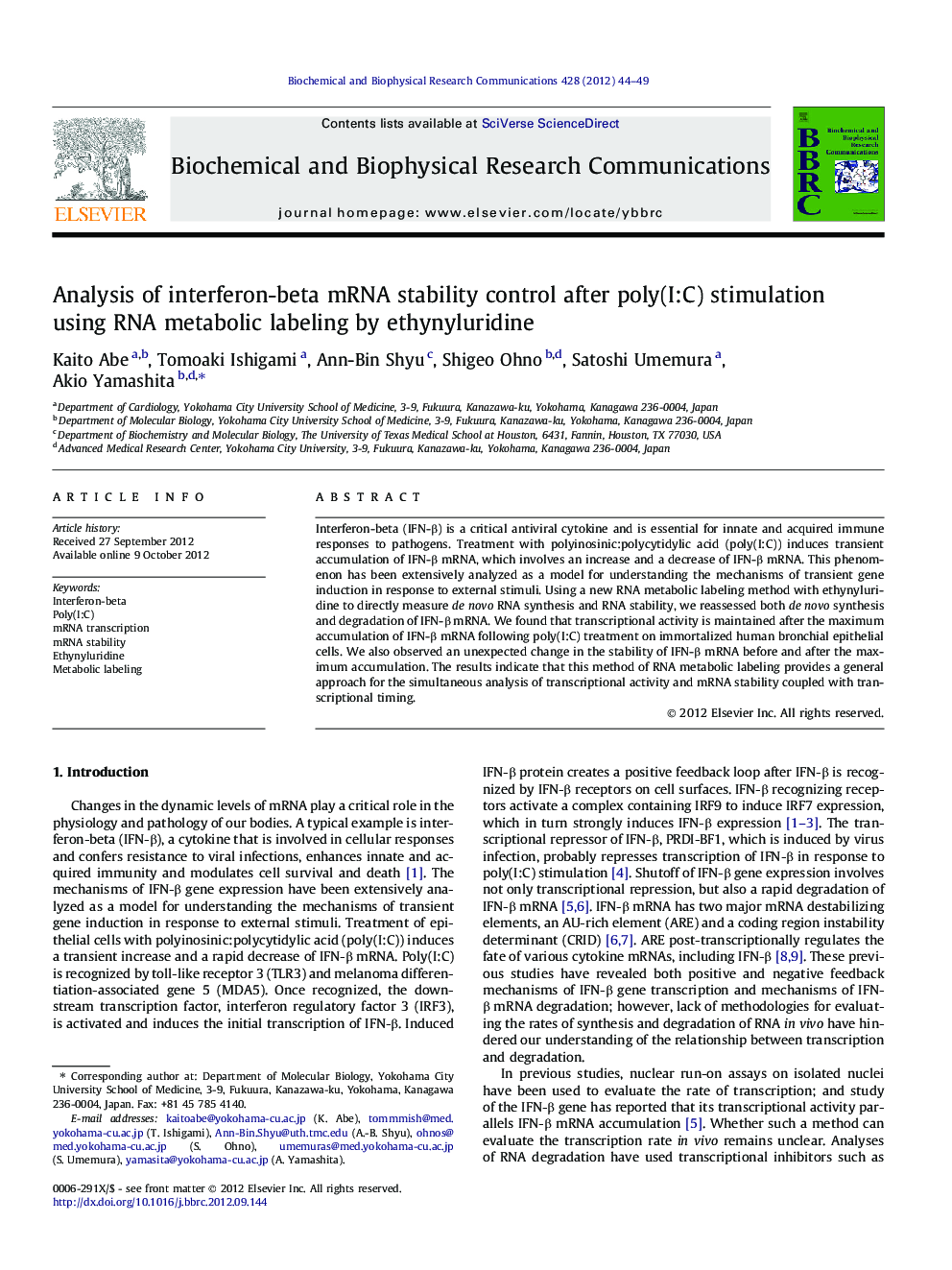| Article ID | Journal | Published Year | Pages | File Type |
|---|---|---|---|---|
| 1929024 | Biochemical and Biophysical Research Communications | 2012 | 6 Pages |
Interferon-beta (IFN-β) is a critical antiviral cytokine and is essential for innate and acquired immune responses to pathogens. Treatment with polyinosinic:polycytidylic acid (poly(I:C)) induces transient accumulation of IFN-β mRNA, which involves an increase and a decrease of IFN-β mRNA. This phenomenon has been extensively analyzed as a model for understanding the mechanisms of transient gene induction in response to external stimuli. Using a new RNA metabolic labeling method with ethynyluridine to directly measure de novo RNA synthesis and RNA stability, we reassessed both de novo synthesis and degradation of IFN-β mRNA. We found that transcriptional activity is maintained after the maximum accumulation of IFN-β mRNA following poly(I:C) treatment on immortalized human bronchial epithelial cells. We also observed an unexpected change in the stability of IFN-β mRNA before and after the maximum accumulation. The results indicate that this method of RNA metabolic labeling provides a general approach for the simultaneous analysis of transcriptional activity and mRNA stability coupled with transcriptional timing.
► RNA metabolic labeling by EU provides accurate analysis of transcriptional activity. ► Transcriptional activity is maintained after the maximum accumulation of IFN-β mRNA. ► mRNA stability can be analyzed by EU labeling without interfering cell physiology. ► Transcriptional timings might determine the stability of interferon-beta mRNA. ► EU labeling is a useful tool to study gene expression regulation.
